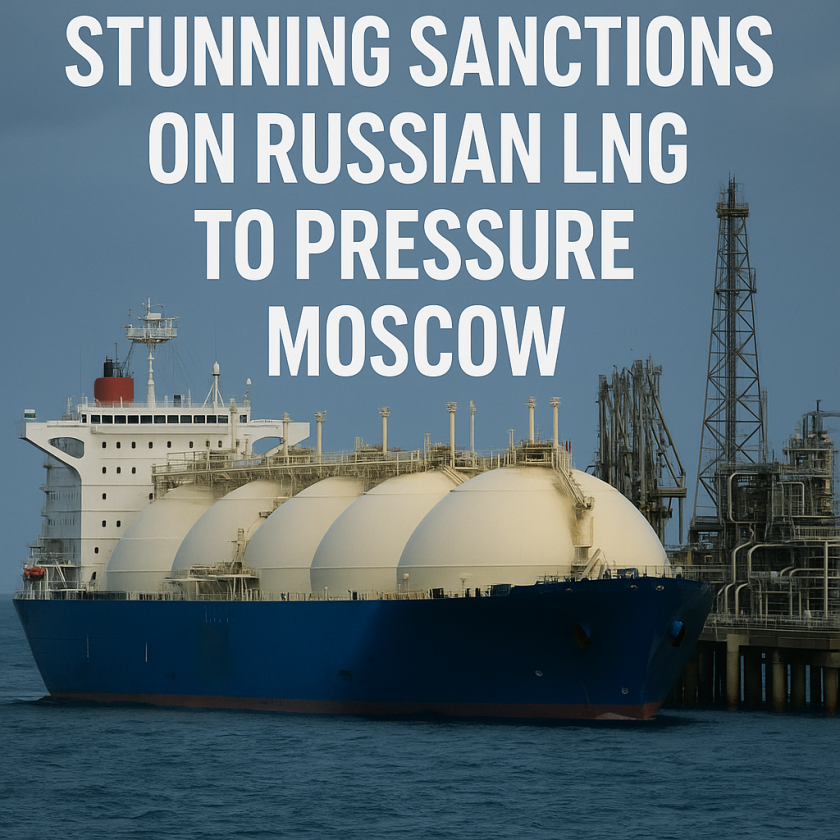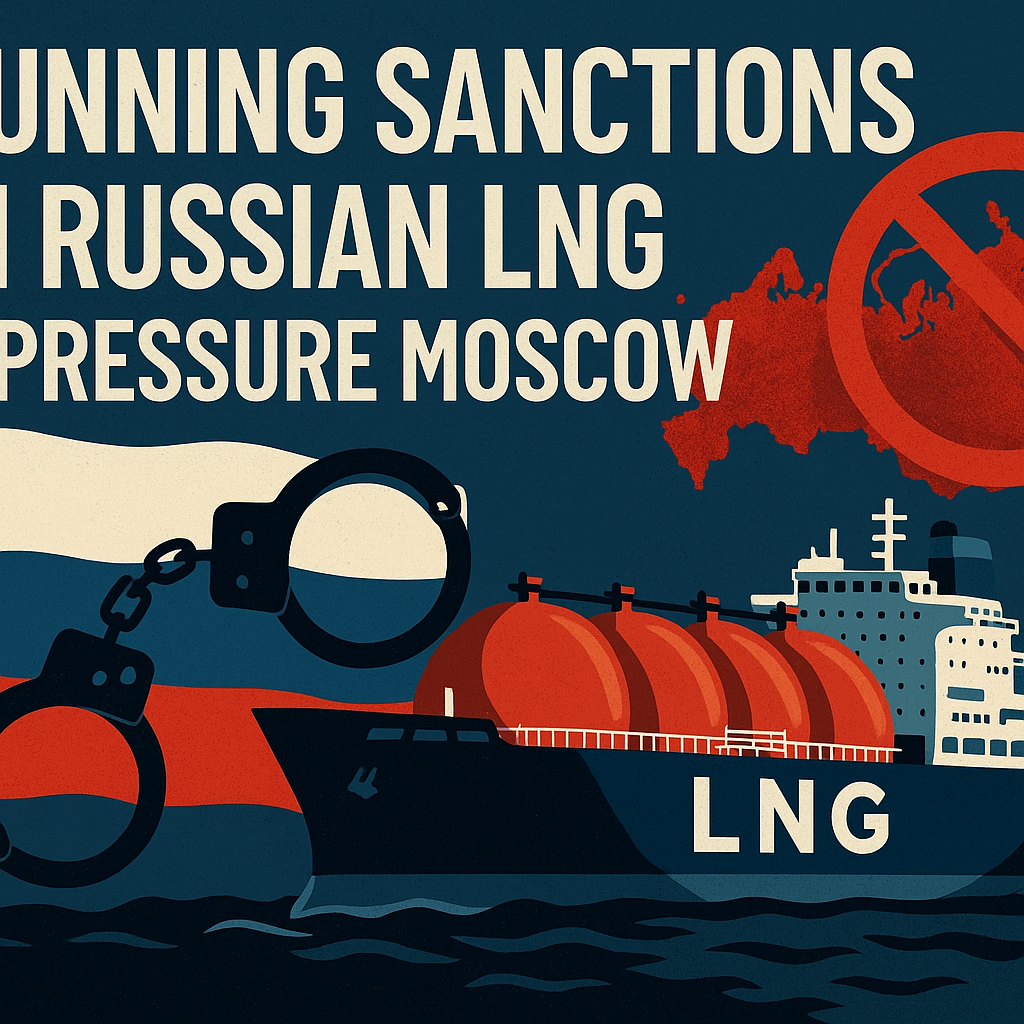Stunning Sanctions on Russian LNG to Pressure Moscow
Stunning Sanctions on Russian LNG to Pressure Moscow
Stunning sanctions on Russian LNG have emerged as a pivotal strategy for Western nations intent on pressuring Moscow over its ongoing military actions in Ukraine. The implications of these sanctions extend far beyond the immediate geopolitical landscape, affecting global energy markets, diplomatic relations, and the economic realities of various countries.
The Geopolitical Context

The recent escalation in sanctions is driven by a desire to weaken Russia’s economic grip and reduce its capacity to fund military operations. According to reports from Al Jazeera, European Union Commission President Ursula von der Leyen has called for tough sanctions targeting Russian liquefied natural gas (LNG) exports. The goal is to mitigate what many see as an assault on European security and sovereignty.
European Dependence on Russian Energy
For years, Europe’s reliance on Russian energy has been a significant factor in its relationship with Moscow. Prior to the conflict, approximately 40% of the European Union’s natural gas came from Russia. This dependency has raised concerns about energy security, making sanctions a double-edged sword.
While the intention to sanction Russian LNG is aimed at crippling Russia’s economic ability to wage war, it forces European nations to reconsider their energy strategies. Some, like Germany, have begun seeking alternatives but face challenges in the short term. As RT News highlights, energy prices have already seen significant fluctuations, resulting in economic strain across Europe.
Diverging Perspectives on Effectiveness
Views on the sanctions’ effectiveness vary. While many experts believe that reducing imports of Russian LNG can inflict tangible damage on the Russian economy, others argue that such measures may also backfire. According to Sky News, with rising energy prices and the reliance on non-Russian energy sources, the impact on Russian revenues may not be as significant as intended.
Pros:
– Economic Leverage: Reduced LNG shipments can significantly destabilize the Russian economy, depriving it of necessary resources for military funding.
– Public Support: Many EU citizens support stringent measures against Russia in light of ongoing human rights atrocities in Ukraine.
Cons:
– Energy Crisis: The European nations could face energy shortages, especially in the winter months, risking public discontent.
– Inflationary Pressures: Increased energy costs could lead to higher inflation rates, which can erode economic stability in the EU.
Balancing Act: Finding Alternatives
In response to the challenges posed by the sanctions on Russian LNG, some European countries are actively seeking alternative energy supplies. The United States has already stepped in, increasing its LNG exports to Europe, which is viewed as both an economic opportunity for the U.S. and a critical lifeline for struggling European nations.
Additionally, investments in renewable energy sources are being expedited as a way to reduce dependency on Russian gas in the long run. However, some analysts remain skeptical about the immediate feasibility of these alternatives.
As reported by Al Jazeera, the transition to greener energy solutions involves significant investments in infrastructure and technology, which will not provide instant relief.
Economic Ramifications
The economic ramifications of these sanctions are profound. Should European nations effectively reduce their reliance on Russian LNG, it could lead to a decrease in Russian GDP. However, Russia may also pivot towards other markets, notably Asia, to mitigate some losses.
Recent discussions around potential new trade deals between Russia and countries such as China and India indicate that a shift in focus may be occurring. These markets offer the possibility of some revenue stabilization for Russia, though not likely at the scale of its previous earnings from Europe.
Public Sentiment on Sanctions
Public sentiment regarding these stunning sanctions is diverse. In many EU nations, there is a strong consensus favoring actions against Russia, driven by concerns over Ukraine and a desire to uphold international law. Yet, there is also rising apprehension regarding the potential economic fallout from such policies. As inflationary pressures mount, citizens are beginning to feel the pinch in their daily lives.
Summary of Public Views:
– Support for Sanctions: A majority advocate for sanctions as an ethical obligation to support Ukraine.
– Concerns Over Economic Impact: Growing worries about energy costs and inflation are fostering a more divided opinion on how far sanctions should go.
A Complex Road Ahead
In summary, while stunning sanctions on Russian LNG represent a significant strategic maneuver against Moscow, the complexity of their impact cannot be overlooked. The push towards reducing reliance on Russian energy reflects genuine concerns about security and human rights. However, the ensuing economic strain raises critical questions about the sustainability and breadth of these sanctions.
As European leaders navigate this precarious terrain, the effectiveness of these stunning sanctions will depend not only on their immediate impact but also on their long-term implications for both Russia and the European Union. It remains to be seen how these strategies will unfold—whether they will indeed pressure Moscow or inadvertently render European nations vulnerable to economic instability.
The situation is in constant flux, and what remains clear is that the stakes are extraordinarily high, both for Eastern Europe and the broader international community.




































